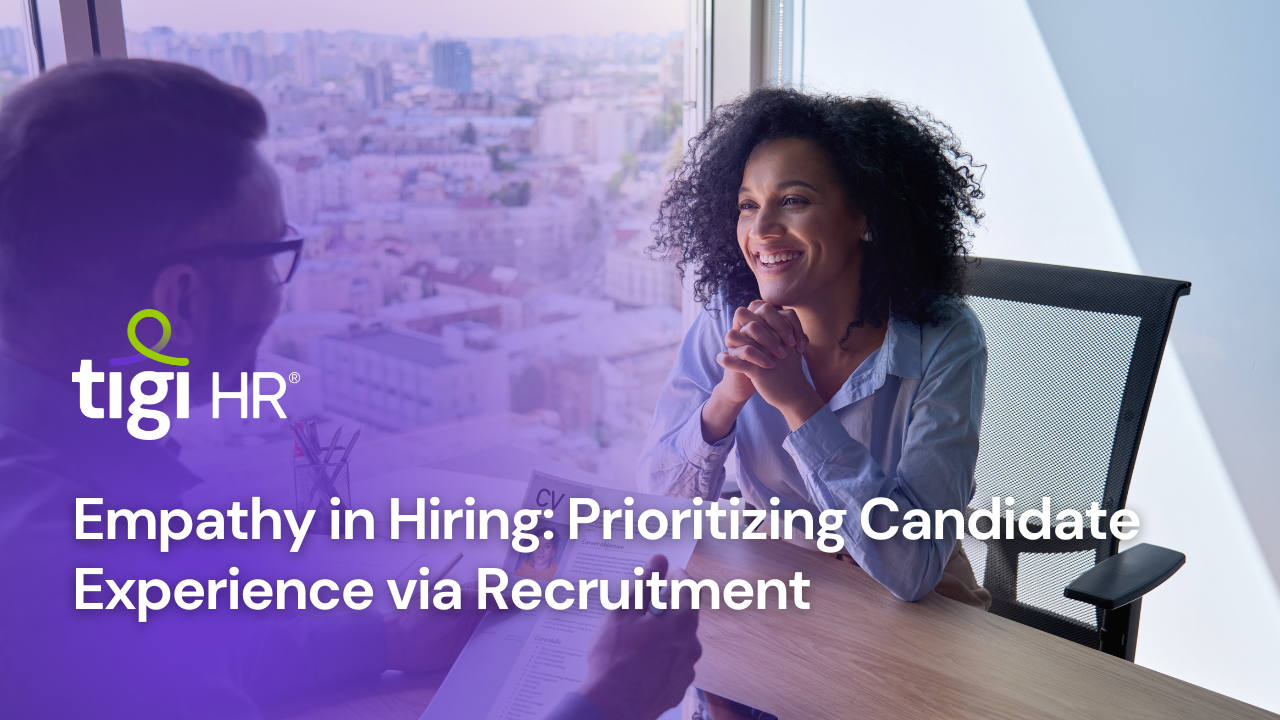In the fast-paced world of modern recruitment, where competition for top talent is fierce, organizations often focus on identifying the best candidates. However, a crucial aspect that is sometimes overlooked is the candidate experience. By infusing empathy into the recruitment process, employers can create a candidate-centric approach that not only attracts top talent but also fosters a positive employer brand and a more inclusive workplace. This article delves into the concept of empathy in hiring and its significance in achieving candidate-centric recruitment.
Understanding Empathy in Hiring:
Empathy in hiring refers to the ability of recruiters and hiring managers to understand and share the feelings and perspectives of candidates throughout the recruitment journey. It involves acknowledging the candidate’s emotions, needs, and concerns, and tailoring the process to align with their expectations.
Empathy in Hiring: Candidate-Centric Recruitment:
Candidate-centric recruitment revolves around placing the candidate’s experience at the forefront of the hiring process. This approach recognizes that each candidate is an individual with unique aspirations and concerns. By adopting a candidate-centric approach, organizations can create a more engaging and respectful recruitment experience.
The Benefits of Empathy in Hiring:
Enhanced Employer Brand:
Organizations that prioritize candidate experience through empathetic recruitment practices develop a reputation for valuing individuals. Positive candidate experiences lead to word-of-mouth referrals and increased applications, bolstering the organization’s employer brand.
Improved Diversity and Inclusion:
Empathetic hiring takes into account the diverse backgrounds and needs of candidates. This approach reduces bias and ensures that all candidates are treated fairly, contributing to a more inclusive workplace.
Higher Retention Rates:
Candidates who feel respected and valued during the recruitment process are more likely to accept job offers and stay with the company in the long run. This reduces turnover rates and associated costs.
Positive Impact on Company Culture:
Emphasizing empathy in hiring sends a clear message about the company’s values and culture. It attracts candidates who resonate with these values, leading to a more cohesive and engaged workforce.
Implementing Empathy in the Recruitment Process:
Transparent Communication:
Keeping candidates informed about their application status and the recruitment timeline demonstrates respect and consideration for their time and effort.
Tailored Interviewing:
Customizing interview questions to align with the candidate’s skills and experiences shows that the organization values their individuality and wants to understand their potential contributions.
Feedback Mechanisms:
Providing constructive feedback to candidates, even if they weren’t selected, helps them understand areas for improvement and fosters a positive perception of the organization.
Virtual Recruitment:
In the age of remote work, virtual interviews and assessments should be designed to be user-friendly and accessible, showcasing the organization’s commitment to accommodating diverse needs.
Measuring the Success of Empathy in Hiring:
Net Promoter Score (NPS):
NPS can gauge candidate satisfaction and their likelihood to recommend the organization to others. Positive NPS scores reflect a successful candidate-centric recruitment approach.
Time-to-Fill:
While prioritizing candidate experience, organizations must also ensure that the recruitment process is efficient. A balanced time-to-fill metric indicates that empathy is not hindering the process.
Employee Referrals:
When current employees refer candidates, it indicates that they believe the organization’s recruitment process is candidate-friendly and worth recommending.
Conclusion:
In the rapidly evolving landscape of recruitment, empathy has emerged as a powerful tool for organizations striving to attract and retain top talent. The shift toward candidate-centric recruitment is a testament to the importance of understanding and addressing the needs of candidates throughout the hiring process. By embracing empathy in hiring, organizations can create a more inclusive and positive workplace culture while reaping the benefits of a strong employer brand and improved retention rates.
How do recruitment agencies facilitate successful modern career transitions?
Find The Role of Recruitment Agencies in Smooth Transitions
Recruitment agencies are pivotal in today’s dynamic job market, aiding professionals in seamless career transitions. They offer personalized guidance, industry insights, skill enhancement, networking, and negotiation support, ensuring successful shifts. These agencies are vital allies for navigating modern career changes.
Find trusted recruitment agencies : Click here





